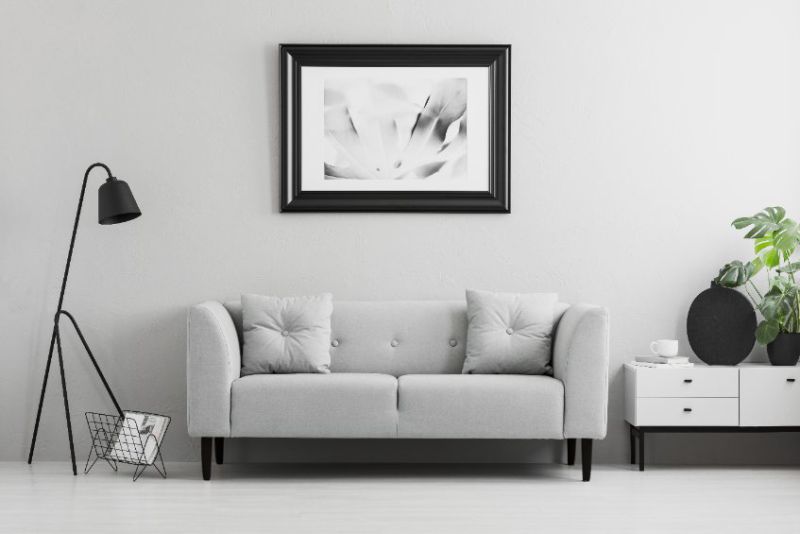
Minimalism is beneficial in so many ways. If you try it, you will notice that you will have more space in your home. You will also notice that you have more free time and disposable money. Also, your home will be tidier and easier to keep that way. With these obvious benefits, it is easy to think that minimalism should be mainstream. But that is not the case. In fact, minimalism is still very much a subculture. Here are some reasons why that is the case:
Many people think minimalism means deprivation.
Many people have the wrong impression of minimalism. They often picture sitting in an empty room with no furniture. Sometimes they picture fitting all their possessions in a small suitcase. Many others see it as having less than a given number of items. Many people are right to dislike these scenarios because they often mean deprivation. They often associate these scenarios with minimalism. This is a major reason why minimalism is still a subculture.
Minimalism is not about deprivation. It is only about getting rid of things you don’t use. Getting rid of things you don’t use is not deprivation. Instead, it frees up your resources so you can focus on the things that you value. For example, if you discarded the shirts you don’t really like, you are left with your favorites.
People get programmed by ads.
Merchants are in business to make money. The successful ones are good at getting people to buy things they don’t really want or need. They use ads to send a variety of messages such as the following:
You need our product to be socially accepted.
Our product will make you happier.
Our product will make you more attractive.
Some of these messages are direct, but many are very subtle. It is no accident that most of the people in ads are good-looking. This is especially true for ads that market clothing, jewelry, cosmetics, or fragrances. The clear message in these ads is that their product will make you attractive.
Similarly, home decor catalogs always show an absence of clutter in their pictures. That’s because their message is that their products will make your home beautiful. Clutter would ruin this message because clutter makes rooms look messy. In fact, many beautiful showroom interiors look like minimalist interiors. The irony is that they are trying to use minimalist decors to sell you stuff.
Merchants constantly bombard us with ads. Each of us probably sees hundreds of ads each day. If you accept their messages into your subconscious mind, they are programming you. This happens to many people. Without thinking about it, they continually buy products they don’t need. These people won’t accept minimalism unless they get deprogrammed.
People associate stuff with prosperity and status.
Many people think that being prosperous means having more stuff. After all, poor people cannot afford to have many things. But there is confusion here between cause and effect. Stuff can be a show of prosperity, but it is not the cause of it. But that doesn’t stop many people from going into debt to get stuff they don’t need. Until they change their attitudes, these people are not likely to become minimalists.
People even associate stuff with status. The problem is that status is relative. This creates a competitive environment where people jockey for status. The result is that people try to outdo each other with status symbols. The desire to keep up with the Joneses is a classic example of this. People who use things to compete for status are not likely to become minimalists.
There is negative propaganda against minimalism.
Minimalism has improved the lives of many people who use it. But merchants hate it because it cuts into their bottom line. There is every good reason to believe they would criticize minimalism. Here are some of the criticisms:
Minimalism is for rich people.
Poor people practice minimalism anyway.
Minimalism is oppressive.
Minimalists are smug.
Minimalism involves cleaning 24 hours per day.
Some of their arguments contradict each other. Some involve personal attacks on minimalists. Many others make no sense for various reasons. These are classic shill tactics and should not surprise anyone. Regardless, they give the impression that minimalism is bad. Unfortunately, many people believe them.
People are afraid of change.
People are creatures of habit. We find change to be inherently stressful. People will resist converting to minimalism despite all the benefits. The reason is that people are afraid of change. This is especially true if the change involves getting rid of some of their possessions.
In summary, minimalism has some important benefits but is still a subculture. One reason is that many people think minimalism is deprivation. Although it is not true, it still turns people off. Another reason is that ads program people to think they need their products for a better life. People also associate material possessions with prosperity and status. Another reason is the negative propaganda against minimalism. Merchants see it as a threat and wage a very effective campaign to discourage people from trying minimalism. Also, many people are afraid of change, so they don’t try it. For all these reasons, minimalism will remain a subculture for quite a while.
